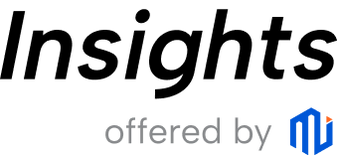Jack Dorsey commits $10 million to open-source social media after leaving Bluesky
Twitter co-founder and Block CEO Jack Dorsey has invested $10 million in experimental open-source projects that could impact the social media ecosystem. Dorsey’s online group, “and Other Stuff,” which was formed in May through a collaboration on Nostr, is behind the venture.
Dorsey, Evan Henshaw-Plath, creator of the e-cash platform Cashu; Alex Gleason, former engineering head at Truth Social; and Jeff Gardner, the fourth employee at Inetercom, banded together to form the online group “and Other Stuff.”
Henshaw explained that the online group has no intention of setting up a company but instead operates like a hacker community.
Jack Dorsey supports open-source social media experiments
The online group “and Other Stuff” met through a partnership on Nostr, an apolitical social networking protocol that defines a scalable architecture of clients and servers for spreading information freely.
Nostr received Dorsey’s attention after stepping down from Bluesky’s board and Twitter when Elon Musk purchased it. The group, however, plans to experiment with other tools, including ActivityPub, a protocol that powers Mastodon, a decentralized application, and Cashu.
Jack Dorsey, Block CEO, revealed that Twitter should never have been a company and that Bluesky appeared to be making the same mistakes he made at Twitter, leading to his departure.
The collaboration “and Other Stuff” has backed the Shakespeare app, which was designed to build Nostr-based social applications with AI assistance. The group also supports Heynow, a voice note app built on Nostr and Chorus, the Nostr-based social community.
Evan Henshaw-Plath noted that developments in AI-based coding have made this type of experimentation possible. He cited technologies such as Ruby on Rails, Django, and JSON and how they helped build the early version of the web. Henshaw planned a debut episode of Revolution on YouTube podcast with Dorsey as the key guest following the investment announcement.
Dorsey says setting up Twitter as a company was a mistake
The podcast shows Dorsey outlining where social media went wrong and his ideologies on improving it. He revealed that it took a long time to realize the mistakes and that it’s hard for companies like Twitter to operate because there are corporate incentives when it wants to be a protocol.
He noted that advertisers crippled Twitter, a challenge that Musk currently faces at X. Musk has gone ahead to threaten advertisers with lawsuits over ad boycotts. Content advertisers were unhappy over X’s lack of moderation and Musk’s controversial comments.
Block CEO said that advertisers’ power is crucial, and they can drain revenues. Dorsey believes users could develop businesses on the platform if Twitter were an open protocol. He attributed the reason to his funding an initiative to introduce an open protocol at Twitter, later named Bluesky.
However, he believes Bluesky faces the same challenges as traditional social platforms because of its structure, which VCs fund. He also pointed out government moderation requests.
According to Henshaw-Plath, “and Other Stuff” is currently working on a social media Bill of Rights that outlines the requirements for social platforms in the areas of privacy, security, interoperability, transparency, identity, self-government, and portability.
Bluesky and others are set to remain accountable to their users despite external pressures. Dorseys’ initial investment has already initiated a new non-profit working on its initial iOS apps.
KEY Difference Wire: the secret tool crypto projects use to get guaranteed media coverage



